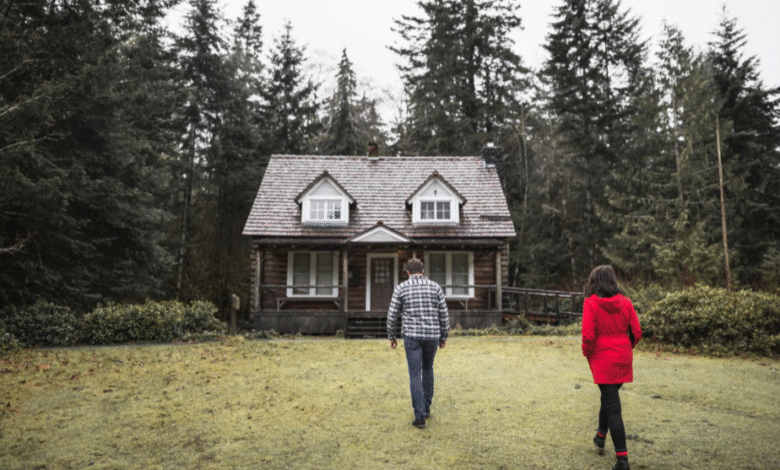Buying Abandoned Houses: A Smart Investment Opportunity or Risky Venture?

Buying abandoned houses can be an enticing opportunity for real estate investors, homebuyers on a budget, or renovators seeking a challenge. While it may conjure images of crumbling walls and overgrown lawns, the truth is that these properties often come with immense potential. If approached wisely, purchasing an abandoned house can lead to profitable returns, a unique home, or revitalized communities. However, it also requires a keen understanding of the legal, financial, and logistical aspects involved.
This comprehensive guide will walk you through the process of finding, evaluating, financing, and renovating abandoned houses—so you can turn a neglected property into something truly valuable.
What Is an Abandoned House?
An abandoned house is a residential property that has been left vacant by its owner, often for a prolonged period. Reasons for abandonment vary, but common causes include:
- Foreclosure
- Legal issues or inheritance complications
- Owner relocation or death
- Economic downturns
- Structural or maintenance problems
Abandoned homes are usually in disrepair and may not have had utilities or upkeep for years. This makes them cheaper than conventional listings, but it also means potential buyers must be prepared to handle the property with care.
Why People Buy Abandoned Houses
People are drawn to abandoned houses for a variety of reasons. Whether it’s the potential to buy an abandoned home for a great return on investment or the chance to breathe new life into a forgotten property, the appeal is strong.
Many investors see these homes as hidden gems—opportunities to buy abandoned home at a low price and renovate for profit. Others are motivated by a desire to restore communities or secure an affordable home in a desirable neighborhood.
- Lower Purchase Price:
Abandoned properties often sell below market value. This creates an accessible entry point for buyers with limited budgets or those looking for a good investment. - Renovation and Resale Profit:
Investors and house flippers see these properties as blank canvases. With the right upgrades, they can resell the property for a significant profit. - Affordable Homeownership:
For individuals or families who are handy and want to build equity through renovation, buying an abandoned home is an economical way to become a homeowner. - Community Improvement:
Restoring abandoned homes helps reduce neighborhood blight and can increase property values in the surrounding area.
How to Find Abandoned Houses
Finding abandoned houses isn’t as simple as checking a real estate website. Here are the most effective methods:
- Drive-By Scouting (Driving for Dollars):
Look for signs like overgrown lawns, broken windows, mail piling up, or notices on the door. - Check Public Records:
Visit the county assessor’s office or tax office for properties with delinquent taxes or unpaid utilities. - Online Tools:
Use platforms like Zillow, Foreclosure.com, or Auction.com. While not every foreclosed home is abandoned, there is considerable overlap. - Work with Local Agents:
Partner with real estate agents who specialize in distressed or off-market properties. - Talk to Neighbors:
Local residents can provide insight into how long a house has been vacant and who might own it.
Legal Considerations Before Buying
Buying an abandoned house isn’t just about finding it—you must also deal with legal red tape:
- Verify Ownership:
Use a title search to identify the legal owner. This could be an individual, a bank, or even the city. - Investigate Liens:
Many abandoned properties come with unpaid debts, such as property taxes, utility bills, or HOA fees. Ensure you understand all outstanding obligations before purchasing. - Zoning and Building Codes:
Some areas impose fines for neglected properties. Know the local rules on property condition, occupancy permits, or historical designations. - Hire a Real Estate Attorney:
This is crucial for navigating tax sales, foreclosure auctions, or disputes with heirs or lenders.
Financing Options for Abandoned Houses
Securing financing for a rundown property can be tricky. Traditional lenders often reject properties that don’t meet habitability standards. Consider these alternatives:
- Cash Purchase:
Ideal if you want to avoid loan contingencies and move fast. - FHA 203(k) Loan:
A government-backed loan that covers both the purchase and renovation costs. Great for owner-occupants. - Hard Money Loans:
Short-term loans for investors. Approval is based on asset value rather than credit score. - Home Equity Line of Credit (HELOC):
Use equity from another property to fund the purchase and repairs. - Local Grants or City Programs:
Some cities offer incentives for revitalizing abandoned homes. Check for urban redevelopment or historic home grants.
Inspecting the Property
Inspection is one of the most critical steps. Never buy an abandoned home without a full inspection.
- Structural Damage: Foundation cracks, roof issues, or pest infestations can be deal-breakers.
- Utilities: Water, electrical, and HVAC systems may need full replacement.
- Mold and Hazardous Materials: Especially if the home has been exposed to the elements.
- Vandalism or Theft: Copper pipes, wiring, or appliances may be missing.
Bring in licensed inspectors and, if needed, structural engineers. Know what you’re getting into before making an offer.
See Also: Exploring Tech Innovations in the Automotive Industry
Making an Offer on an Abandoned House
Once you’ve completed your due diligence:
- Bank-Owned (REO) Properties:
Work through a real estate agent to submit a formal offer. Expect slow negotiation. - Privately Owned:
If you locate the owner (via title search), you can contact them directly or through a real estate attorney. - Auctions or Tax Sales:
These often require cash up front. Do your homework—auction properties are sold “as-is,” with no guarantees.
Renovating an Abandoned Home
You’ve bought the property—now the real work begins.
1. Prioritize Safety:
Start with the basics: secure the structure, check for mold, remove debris, and inspect for fire hazards.
2. Handle Utilities and Major Systems:
Replace outdated or unsafe electrical, plumbing, and HVAC systems.
3. Cosmetic Upgrades:
After addressing major issues, focus on flooring, painting, and kitchen/bath upgrades.
4. Permits and Codes:
Ensure all work complies with local building codes. Work only with licensed contractors.
5. Budget Wisely:
Set aside at least 20% more than you expect to cover surprises.
Risks to Be Aware Of
- Cost Overruns: Unexpected repairs can quickly blow your budget.
- Legal Delays: Probate, bankruptcy, or lien resolution may drag on for months.
- Market Risk: If values drop, your investment may not pay off.
- Insurance Challenges: Some insurers charge higher premiums for distressed properties.
- Squatters or Vandalism: Ensure the property is secured during the purchase and renovation phases.
Should You Buy an Abandoned Home?
This path isn’t for everyone. Consider your answers to the following:
- Do I have a trusted contractor or renovation team?
- Am I comfortable with uncertainty and risk?
- Is this a long-term investment or short-term flip?
- Do I understand the local market?
Conclusion: Turning a Forgotten Property Into a Future Asset
Buying an abandoned house can be a fulfilling and financially rewarding venture, but only if you enter the process prepared. With the right mindset, financing, and expert help, you can transform a neglected property into a livable home or profitable investment. Whether you plan to renovate and move in, rent it out, or flip it, the key is to balance ambition with diligence.
As real estate continues to evolve, abandoned houses present a rare opportunity: to create value where others see risk. And for those ready to embrace the challenge, the rewards can be life-changing.




